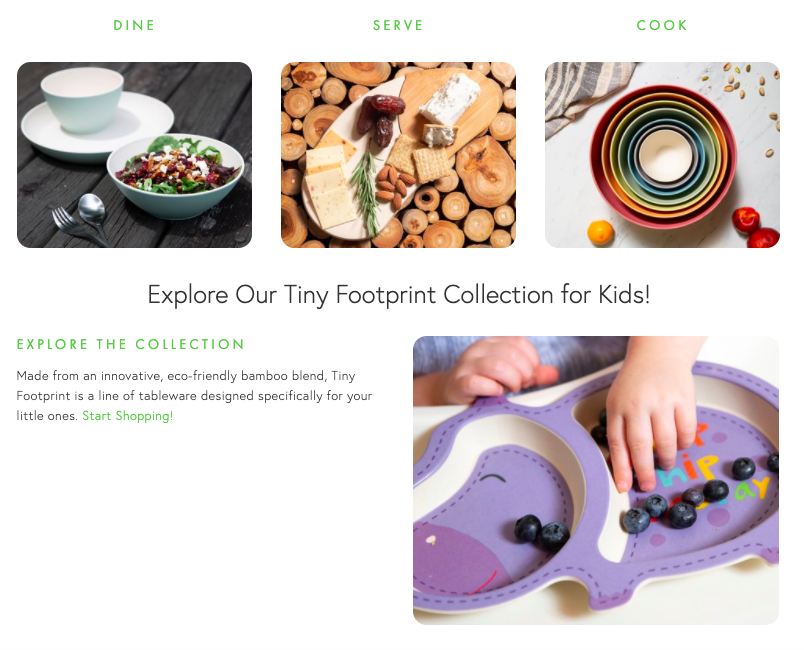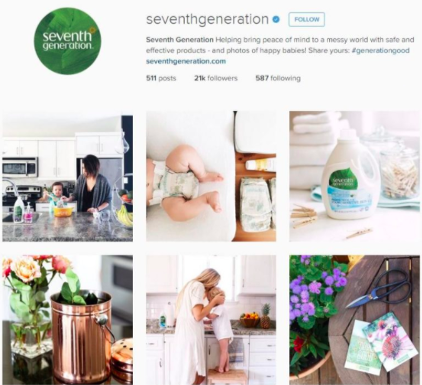In honor of the 50th anniversary of Earth Day, we are reflecting on how brands are taking the lead to create a more sustainable future. While continuing to give consumers what they want, companies of all industries are becoming more eco-conscious. Learn more about the latest environmentally friendly trends of some of our favorite brands, including one of our very own partners below!

Upcycled Materials
From reusable water bottles to composters, there isn’t a single housewares product in 2020 that is off-limits from becoming more sustainable. Our client Bamboozle aims to merge nature and design at your dinner table, cocktail party, or in the kitchen. Its eco-friendly collection is not only stylish, it is also a sensible and convenient step toward green living. With Bamboozle, all of the items are made from reclaimed, renewable, and biodegradable materials, proving there is always room for brands to make their products more sustainable!

Green Branding
Positioning your brand as “green” can help angle your company as a leader in the field. Whether you decide to target your audience by incorporating an eco-friendly mission statement, or your products showcase clean ingredients, transparency will help consumers associate your business with sustainable practices. Such efforts then appeal to consumers who are becoming more aware of the need to protect the environment. To promote their efforts to go green, Seventh Generation uses the hashtags #ComeClean and #GenerationGood throughout social media. These hashtags are just one creative way the brand is using its voice to spread the word about making healthy choices that benefit families and the collective good. Seventh Generation’s social content ties into the sustainability factor by featuring their green household supplies with clean, family-oriented lifestyle imagery.

Sustainability Partnerships
Brands can also voice their environmental concerns by collaborating with non-profits or charities to achieve corporate fundraising goals. In 2018, French sportswear brand Lacoste manufactured a line of polo shirts to signify the plunging population of endangered animals. The brand replaced their signature crocodile logo with animals facing extinction. All profits from the 1775 polo shirts sold were donated to IUCN in a bid to help them in the fight for wildlife conservation worldwide.
The crocodile is leaving its iconic spot to 10 threatened species through a partnership with the @IUCN. Help us fight for wildlife conservation worldwide. Click here to discover more: https://t.co/9UhE1vUCel #LacosteSaveOurSpecies pic.twitter.com/PjZMRhdDD1
— Lacoste (@LACOSTE) February 28, 2018
Taking Action
Fast fashion, or the practice of developing and selling easily consumed and disposable fashion that requires rapid production, is causing excessive fabric waste that adds to the negative impact on the environment. The fashion industry is ever changing and brands like Tentree are setting the fresh, sustainable trend. While delivering clothing made with materials sourced from nature, Tentree’s mission is to also keep the planet bountiful by planting 10 trees for each item purchased. Customers are able to track the growth of their trees, which encourages environmental responsibility.

These sustainable marketing strategies remind us that adding a unique selling point to a product can boost corporate image and drive overall business success. We are so impressed by the creative and impactful trends brands are utilizing and look forward to seeing more companies take an eco-friendlier approach.







